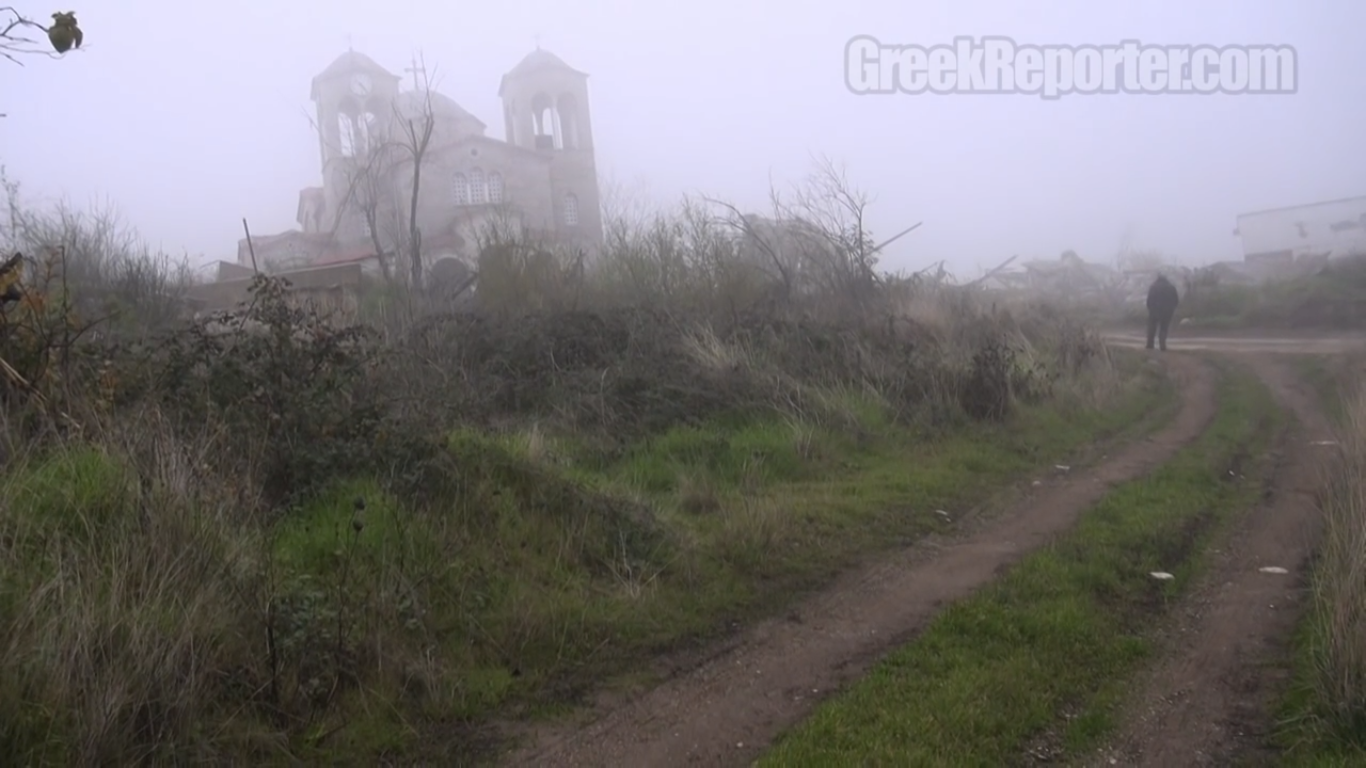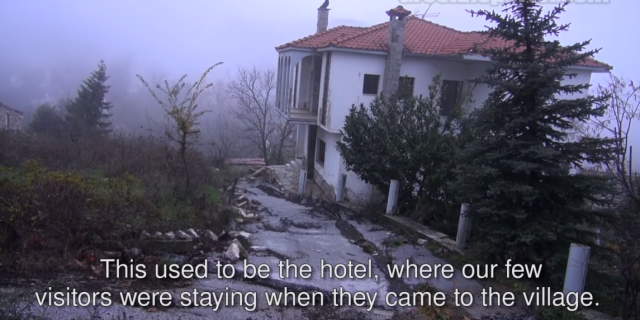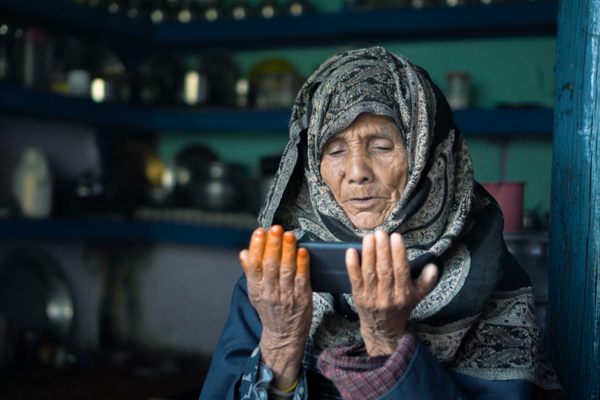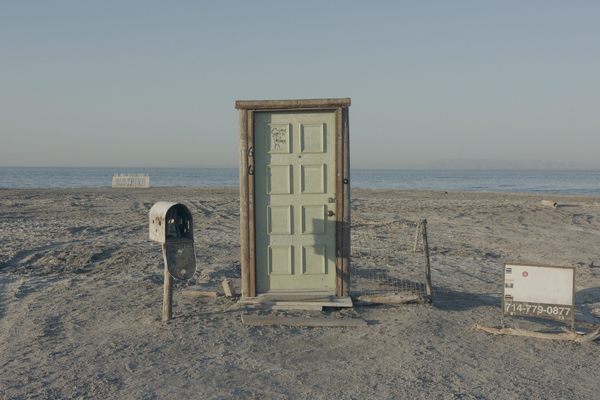Chilling Scenes from Greece’s Sinking Ghost Town

A still from the documentary short. (Video: Youtube/Greekreporter.com)
This week, a YouTube documentary brought attention to a double tragedy in Greece: A ghost town that’s sinking.
In America, we often associate ghost towns with economic collapse, particularly the abandoned settlements that sprung up—and died—due to the 19th century gold rush in the southwest. Occasionally, these towns breath life into nearby settlements as tourist destinations (and chili enthusiast destinations), like Terlingua, Texas. Globally, however, numerous ghost towns have resulted from natural disasters, environmental hazards, or industrial contamination, in addition to economic deterioration.
For the village of Ropoto, the reason for abandonment is geological. It’s sinking into the ground.
With its dramatic score and eerie shots of askew buildings emerging from a swirling fog, the 12-minute documentary produced by GreekReporter.com evokes a grim atmosphere of gothic horror. Yorgos Roubies, the former president of the Ropoto Council, leads a tour of the town and explains the events leading to Ropoto’s abandonment. In the 1960s, cracks began appearing in the land around the town, alerting geologists to the problem, and villagers were ordered to abandon Ropoto’s city center. However, by 1982 these concerns seem to have been forgotten—Roubies claims that “everyone was getting building permits” and points out a hotel built in the previously-off-limits city center that year.

On April 12, 2012, a major landslide occurred, drastically altering the town landscape, damaging some buildings, and destroying others outright. The 2012 landslide forced the 300 families inhabiting the town to abandon their homes, and Roubies describes being “dragged from his house” by the Trikala fire brigade.
As Roubies and the documentary film crew tour the town, it’s clear that abandonment was the only option in 2012. The village school, located in the particularly unstable city center, is nothing more than a pile of rubble and rotting wood. A monument to the village residents who served in World War I has vanished—all that remains is the monument base, tilted at a 30-degree angle. Roubies’ own home tilts over a cliff, recalling an illustration from a children’s book. He points further up the hill and explains, “My house used to be up here, but it started drifting downwards.”
At this point, the town is beyond salvation. According to Roubies, the terrain has sunk an additional 10-15 centimeters since 2012, meaning the slow destruction of the buildings will only continue. Apple farming—once the town’s primary industry—is no longer tenable, and the hills that once held orchards are barren. The documentary explains the villagers’ frustration through Roubies, whose voice cracks with distress. The villagers claim the state has abandoned them, failing to take measures to minimize the potential for landslide damage prior to 2012 and providing no assistance now.
Indeed, a paper presented at the 1998 Eighth International Congress of the International Association for Engineering Geology and the Environment analyzed the situation in Ropoto and enumerated steps to mitigate landslide damage. “[E]ven in this stage,” the authors write, “facing of the phenomena is possible.” The paper’s authors argue that relatively simple and inexpensive measures could be taken to address the issue in most areas of the town, but—14 years before the landslide that would force out the villagers—the city center was already in critical condition.
“Therefore,” they explain, “the application of either usually very expensive measures or a decision to move the village to a safer place becomes absolutely necessary.” Even while acknowledging that relocating the village may be the only tenable solution, the authors emphasize that relocation should only be considered as a last resort, pointing out the serious economic and social consequences for the residents.
Today, Roubies claims the government has continued to disregard the former residents of Ropoto. He claims that no damage assessments have been made, and even that some villagers are still required to pay property taxes on their uninhabitable homes. However, he points out that Ropoto’s residents did have one reprieve—no one was injured or killed in the 2012 landslide. “Our dreams have,” he says, “we are disappointed.”
Ropoto: Greece’s Sinking Ghost Town. (Video: Youtube/Greekreporter.com)










Follow us on Twitter to get the latest on the world's hidden wonders.
Like us on Facebook to get the latest on the world's hidden wonders.
Follow us on Twitter Like us on Facebook